The Straight Shot: Federal vaccine updates - Jun 12, 2025

weyo - stock.adobe.com.
The first half of 2025 has seen many changes in federal vaccine policy and programs. This list—published June 12, 2025, and drawn from news reports and other information—ranks the most significant changes to vaccination policy, with brief commentary from the editors.
Editors’ note: This was a significant week for federal vaccine policy, with the unprecedented removal of all of the members CDC’s Advisory Committee on Immunization Practice (#1), an unpersuasive justification for removal of the Covid vaccine recommendation for pregnancy (#3), and new falsehoods from RFK, Jr., about a vaccine opponent he brought to HHS to study vaccine safety (#4).
The Straight Shot in your inbox
Stay up-to-date on threats to vaccine safety, changes in federal policy, and vaccine availability and accessibility with The Straight Shot. Click below to get these updates directly in your inbox.
Sign up for email updates1. Secretary Kennedy dismisses all ACIP members
On June 9, Secretary Kennedy removed all 17 members of the CDC’s Advisory Committee on Immunization Practices (ACIP), claiming that this was a step to “restore trust.” On June 11, Sec. Kennedy announced on X the names of 8 new members of the committee, including Robert Malone, who spread falsehoods during Covid, and Vicky Pebsworth, who is a board member of one of the nation's most prominent anti-vaccine organizations. Career staff responsible for overseeing ACIP were also removed from their jobs this week. ACIP now appears to be run by the CDC’s Chief of Staff, who has no apparent public health experience (see #7 below).
Secretary Kennedy’s Wall Street Journal column explaining his decision to fire the ACIP members contained significant errors. For example, he stated that a 2009 report found that 97 percent of committee members had not fully completed the conflict-of-interest (COI) form in their application. In fact, the report–which only looked at meetings held in 2007–found that 97 percent of the applications had errors of some kind, typically a missing date or the like, rather than the substantive errors that he implied. HHS’s own website shows that many ACIP meetings have no members with a COI, and that recusals are required when there is a COI.
Other members of the administration had also maligned ACIP, setting the stage for the terminations; on June 1, FDA Commissioner Makary stated that ACIP is a “kangaroo court” that “rubber stamps every vaccine put in front of them.” This, too, was untrue. The Committee discusses nuances of vaccine recommendations for hours and does not necessarily recommend their use to the full extent of their FDA label. For example, ACIP has not endorsed a universal recommendation for the Meningitis B vaccine even though the FDA has approved the vaccine.
Editors’ note: ACIP is a pillar of US vaccine policy. The committee's recommendations guide both private insurance coverage and inclusion in the Vaccines for Children Program, which provides vaccines to more than half of U.S. children. Additionally, states set many vaccine policies based on ACIP recommendations.
There was nothing wrong with the composition of ACIP. Members included national leaders in the field of public health and infectious disease. Now, Secretary Kennedy's appointees will have the power to drastically reshape access to and use of vaccines in the United States. It's no surprise that the American Academy of Pediatrics, the Infectious Diseases Society of America. And the American Medical Association have voiced their strong objection to this dangerous action. The American Medical Association is also calling on the U.S. Senate to investigate these dismissals. – SD, JR, JS, PL
2. HHS mismanages the measles response in the Southwest
As of June 6, 2025, there have been 1,168 confirmed cases of the disease, including 137 hospitalizations and three deaths; this is the largest outbreak in the US in 25 years.
One challenge in the response is Sec. Kennedy making misstatements about the safety of the measles vaccine, endorsing unproven treatments, and preventing experts from briefing the public. HHS also cut grant funds for the states' measles responses.
Editor’s note: We anticipated that this would remain in the top spot for the foreseeable future, but the remaking of ACIP by Secretary Kennedy bumps this down to #2 this week. – SD
3. HHS drops recommendations for Covid vaccines for healthy children, pregnant women
This week, HHS shared an FAQ document with Congressional offices that attempts to justify removing the recommendation that healthy pregnant people and children receive the Covid vaccine. This document cites a particular study to claim that vaccination is associated with fetal loss, even though the study does not reach that conclusion, and multiple other studies, which the document does not cite, have not found such an association. The American College of Obstetrics and Gynecology strongly recommends Covid vaccination during pregnancy.
Additionally, in the wake of Secretary Kennedy's decision to change Covid vaccine recommendations, a CDC official who served as one of the leads of the Covid workgroup resigned from the CDC. Dr. Lakshmi Panagiotakopoulos wrote in an email to her colleagues: "My career in public health and vaccinology started with a deep-seated desire to help the most vulnerable members of our population, and that is not something I am able to continue doing in this role."
Editor’s note: Selective and erroneous citation exposes the lack of justification for this significant change in Covid vaccine recommendations. – PL
4. HHS hires anti-vaccine activist to review vaccine safety data
HHS has hired David Geier, a leading source of misinformation about vaccines, to investigate questions related to vaccine safety. This week, the Wall Street Journalreported on Geier’s attempts to gain access to various databases within HHS, including one that he had twice been precluded from using. “He has no record in the scientific community of doing valid work,” said Dr. Walter Orenstein, an epidemiologist and former director of the U.S. National Immunization Program at the CDC.
Sec. Kennedy, in a lengthy post on X on June 7, defended hiring Geier. His post included a number of falsehoods and misrepresentations. For example:
- Secretary Kennedy implied that, after being censured for practicing medicine without a license by the Board of Physicians, Geier had been exonerated by Maryland courts. This is untrue. On appeal, the courts repeatedly upheld the charges.
- Sec. Kennedy presented Geier as an expert, referencing, as an example, his presentations to the Institute of Medicine. Yet, in its report on vaccine safety, the committee of the Institute of Medicine characterized Geier’s work as so flawed as to be “uninterpretable.”
- Sec. Kennedy claimed Geier had been stopped from conducting valid work using data from the Vaccine Safety Datalink. In fact, he lost access because of ethical concerns.
Editor’s note: In his post, Sec. Kennedy announced that HHS would be making a version of the Vaccine Safety Datalink, which draws from the medical records of millions of people, available to the public. It is hard to imagine this being done without raising serious privacy concerns. –SD
This item, detailed in previous updates of the Straight Shot, stays on our list until the Geier report is released. – JS
5. FDA adds new restrictions and requirements on Covid vaccines
The FDA has yet to release documents about the implementation of the agency's new approach to Covid vaccine approval, which was announced in an article in the New England Journal of Medicine. As a result, manyquestions remain. This week, consistent with that new approach, Moderna agreed to conduct another placebo-controlled randomized controlled study of its new Covid vaccine in people 50 to 64 years old.
Editor’s note: Given the positive results of the study conducted for approval, it may be very challenging for this additional study to enroll the needed number of people. – JR
6. HHS moves $500 million to study older vaccine technology favored by two appointees
HHS abruptly pulled $500 million from contracts for next-generation vaccines and is using the funds to study a type of "whole-virus" vaccine technology developed and championed by two political appointees. "Whole-virus" vaccines are 70 years old and thought by many scientists to be less effective and cause more adverse effects than newer technologies.
Editor's note: This item, described in more detail in previous updates of The Straight Shot, will stay on our list until we learn more about this enormous investment of federal resources. – JS
7. Confusion over leadership at the CDC
Numerous HIV vaccine research projects were abruptly ended by HHS this past week. Additionally, NIH was instructed not to fund new research efforts in this area.
Editor's note: In 2023, 630,000 people died of HIV worldwide. An HIV vaccine would transform public health and save countless lives; this decision is a massive setback to the field. – PL
8. HHS Secretary delays action on ACIP recommendations
At the April 16 meeting of the ACIP, the committee made recommendations for the use of a new chikungunya vaccine, RSV vaccines for older adults, and a new pentavalent meningococcal vaccine. While Secretary Kennedy, acting in the absence of a CDC director, has adopted the ACIP recommendation for a new chikungunya vaccine, he has not yet acted on the two other ACIP recommendations. (No change from last update.)
Editor's note: This item will stay on the list until Secretary Kennedy acts on the outstanding recommendations. – SD
9. HHS cuts funds for vaccination in states and for its own vaccine staff
A federal judge has ruled that the Administration cannot proceed with $11 billion in cuts to state public health funds–but only in those states that sued to keep the funds. In the other states that lost funding, some funds were used to support vaccination clinics, while other funds were allocated for outbreak monitoring and response. Personnel cuts at the CDC to vaccine activities have remained in place. (No change from the previous update.)
Editor's note: This item, detailed in previous updates of the Straight Shot, stays on our list until the issue is resolved. – JR
10. White House issues an initial MAHA report
On May 22, the White House issued the Make Our Children Healthy Again Assessment. One section of the report was dedicated to concerns regarding vaccines, questioning the expansion of the childhood immunization schedule, the adequacy of clinical trials, the effectiveness of safety monitoring, the integrity of the Vaccine Injury Compensation program, and the role of vaccine mandates. The report has come under fire for the inaccuracy of data as well as errors in citations as a result of the use of generative AI. (No change from the previous update.)
Editor's note: We will keep this issue on the list until the final report is issued – SD
The Straight Shot in your inbox
Stay up-to-date on threats to vaccine safety, changes in federal policy, and vaccine availability and accessibility with The Straight Shot. Click below to get these updates directly in your inbox.
Sign up for email updatesWhat we're watching
- HHS and autism. On April 10, Sec. Kennedy announced in a cabinet meeting that HHS has launched a major effort to understand the causes of autism, with results expected in September. He has since amended that timeline, saying that there will be some information in September and “more definitive” information coming six months after that. This is separate from David Geier's investigation into vaccine safety. On May 7, CMS and NIH announced that they will be sharing data in order to investigate the causes of autism. We're watching whether this effort will proceed in a scientifically rigorous manner, including whether this effort will attempt to point to vaccines as the cause of autism. On May 27, the NIH issued the funding opportunities for its Autism Science Data Initiative. (No change from the previous update.)
- Potential CDC vaccine safety reorganization. Sec. Kennedy is reportedly planning to reorganize the CDC’s approach to vaccine safety. We're watching to see whether these changes may undermine the current system of post-market surveillance, which includes a robust research network for assessing potential safety issues. (No change from the previous update.)
Archived this week
- Moderna withdraws a vaccine application. Previously, Moderna had submitted an application to the FDA for approval of a combined Covid and flu shot that uses mRNA technology for both viruses, a product that would likely increase uptake in advance of the respiratory virus season as it would require fewer shots. According to results published in the Journal of the American Medical Association, this vaccine outperformed stand-alone vaccines for both flu and Covid. On May 21, however, Moderna announced, without explanation, that they were pulling their application for this vaccine and would wait for the results from its standalone flu vaccine to resubmit.
Editor's note: I'd like to know whether Moderna's decision to pull their application for this combination product is related to a real issue with the application or is part of a larger pattern of arbitrary federal decision-making on mRNA technology and on respiratory vaccines, including influenza, RSV, and Covid vaccines. – JR
- HHS pulls funding from Moderna. HHS announced that it was canceling $766 million in contracts with Moderna to develop mRNA vaccines for various strains of flu, including the H5N1 strain currently circulating in birds that could develop into new pandemics. Early data around safety and immune response showed promise.
Editor's note: Having these vaccines developed before a pandemic begins would save critical time should another virus make the leap from animals to humans. The administration’s skepticism of mRNA vaccines is making us all less safe. – JS
- HHS ends HIV vaccine research. Numerous HIV vaccine research projects were abruptly ended by HHS the week of May 26. Additionally, NIH was instructed not to fund new research efforts in this area. Editor's note: In 2023, 630,000 people died of HIV worldwide.
An HIV vaccine would transform public health and save countless lives; this decision is a massive setback to the field. – PL
Have suggestions for The Straight Shot?
Email us at straightshot@cspinet.org
Tags
Topics
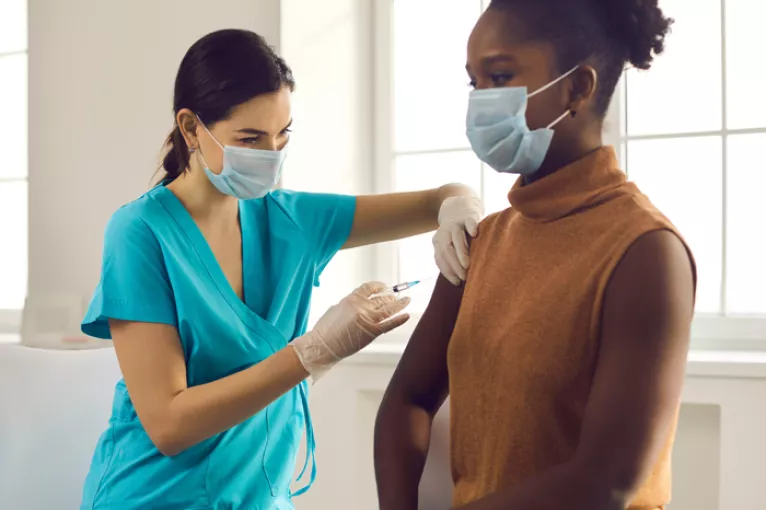
All Straight Shot updates
2025 has seen many changes in federal vaccine policy and programs, some of which threaten to harm the health and safety of millions of Americans. The Straight Shot—drawn from news reports and other information—ranks the most significant changes to vaccination policy, with brief commentary from the editors.
The authors
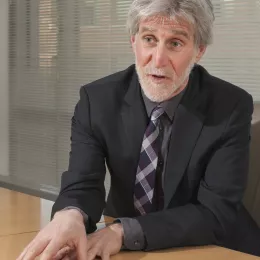
Peter Lurie, MD, MPH
President and Executive Director

Sarah Despres

Josh Rising, MD, MPH

Joshua M. Sharfstein, MD
The latest threats to vaccines
Off-label use of COVID-19 vaccines was once discouraged but has become common amid new guidelines
Vaccines
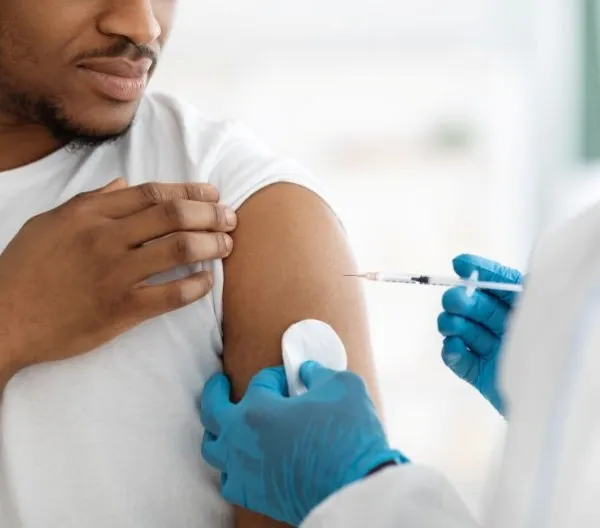
Inside the high-stakes battle over vaccine injury compensation, autism, and public trust
Vaccines

Do pediatricians recommend vaccines to make a profit? There’s not much money in it
Vaccines

CDC purge and Covid vaccine restrictions threaten public health
Government Accountability
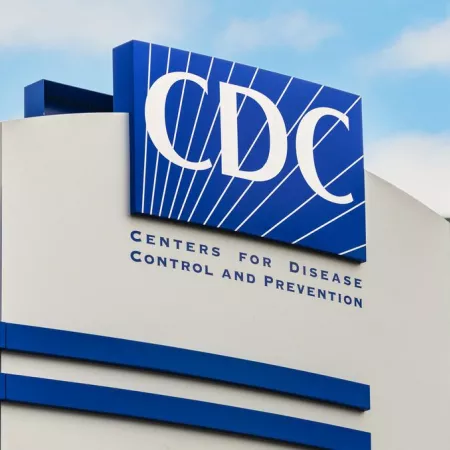
Pediatricians’ association recommends COVID-19 vaccines for toddlers and some older children, breaking with CDC guidance
Vaccines
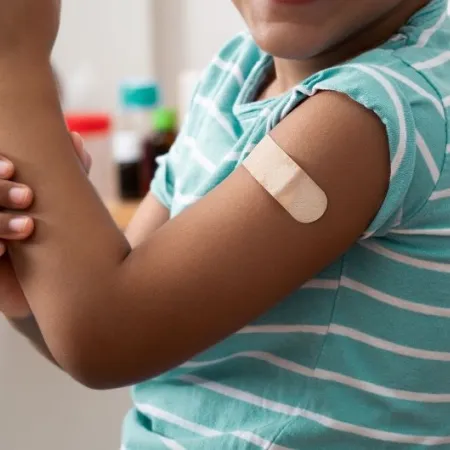
CSPI is your food & health watchdog
We envision thriving communities supported by equitable, sustainable, and science-based solutions advancing nutrition, food safety, and health.
As a nonprofit organization that takes no donations from industry or government, CSPI relies on the support of donors to continue our work in securing a safe, nutritious, and transparent food system. Every donation—no matter how small—helps CSPI continue improving food access, removing harmful additives, strengthening food safety, conducting and reviewing research, and reforming food labeling.
Please support CSPI today, and consider contributing monthly. Thank you.
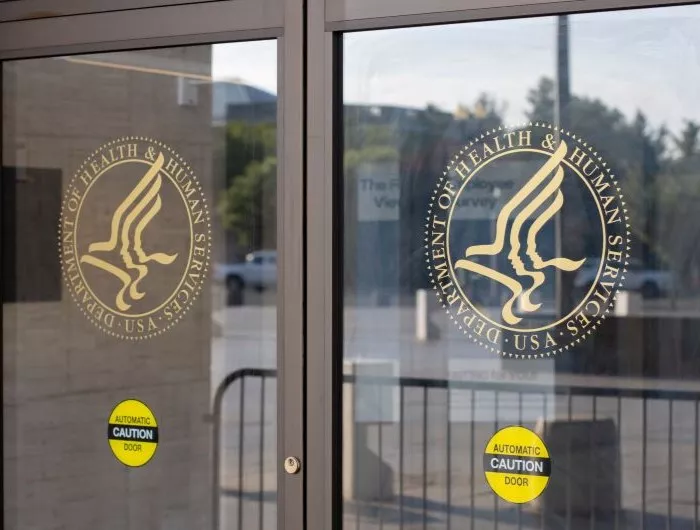
How CSPI is fighting threats to public health
Safe, nutritious food. Effective medicine. Empowered consumer choice. Honest and democratic government. These key building blocks of an American way of life can only be fully realized in a system that respects evidence, transparency, and accountability—a system where leaders believe in science and work for the public interest.

